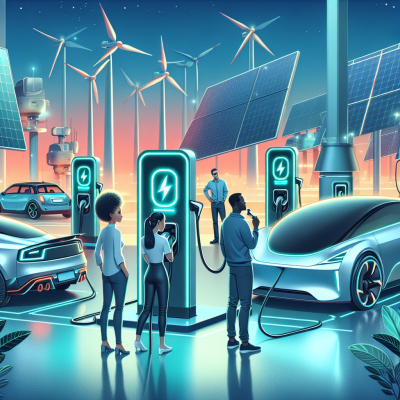
Driving the Future: The Rise of Fast-Charging EV Battery Technology
The electric vehicle (EV) battery market is rapidly evolving, fueled by increasing consumer demand, supportive government policies, and the urgent call for sustainable transportation solutions. One of the most critical developments in this sector is the innovation in fast-charging technologies. As EV adoption accelerates globally, the need for batteries that recharge quickly and efficiently has never been greater.
According to current market projections, the EV battery sector is expected to register a compound annual growth rate (CAGR) of 10.1% between 2025 and 2032. This robust growth reflects a transformative period for EV supply chains, infrastructure, and, notably, battery capabilities.
Why Fast-Charging Technology Matters
Fast-charging technology is a game-changer in the EV landscape. It directly addresses one of the primary adoption barriers for consumers — charging time. Unlike traditional charging, which can take several hours, fast-charging enables EVs to recharge within minutes, significantly enhancing convenience.
Key Benefits of Fast-Charging Innovation:
- Reduced Downtime: Enables longer journeys with shorter stops.
- Improved EV Adoption: Makes electric vehicles more appealing to a larger audience.
- Infrastructure Synergy: Supports the expansion of public and private charging networks.
- Fleet Enablement: Ideal for commercial fleet operations where time equals money.
The Technology Behind Fast Charging
Fast charging is made possible through a combination of high-voltage battery systems, advanced thermal management, and intelligent energy management technologies. Companies are investing heavily in research to overcome fundamental challenges like battery degradation, safety, and energy density.
Innovative Battery Compositions
Recent advancements in battery chemistries, such as solid-state batteries and high-nickel cathodes, offer enhanced conductivity and reduced internal resistance. These improvements allow for significantly faster energy transfer, enabling charging times of under 15 minutes.
Thermal Management Solutions
Managing the heat generated during fast charging is crucial to maintaining battery integrity. Technologies such as liquid cooling and phase change materials (PCM) are being integrated to regulate temperature and ensure long-term battery health.
Market Leaders and Startups Driving Innovation
The fast-charging segment has attracted a flurry of activity from both industry leaders and disruptive startups. Key market players like Tesla, Panasonic, CATL, and LG Energy Solution are spearheading R&D efforts. Meanwhile, newcomers like StoreDot and QuantumScape are making headlines with claims of ultra-fast charging solutions.
Tesla’s Supercharger Network
Tesla not only manufactures some of the highest-performing EV batteries but also maintains one of the world’s most extensive fast-charging networks. With a mission to reduce charging times to under 10 minutes, Tesla continues to push the industry standard.
StoreDot’s Nanotechnology Approach
StoreDot has made impressive strides with its “100in5” cells — EV batteries that can charge 100 miles in just five minutes. Its use of nanomaterials and proprietary compounds could reshape the EV charging narrative.
Challenges Facing Fast-Charging Deployments
Despite technological advances, several challenges must be addressed to make fast charging universally accessible:
- High Infrastructure Costs: Installing high-capacity chargers involves significant investment.
- Grid Demand: Fast charging draws vast amounts of electricity in short bursts, stressing existing power grids.
- Standardization: Varying protocols across providers can hinder user experience and interoperability.
- Battery Lifespan: Repeated fast charging may shorten battery life if not properly managed.
The Road Ahead: A Fast-Charged Future
As EV sales skyrocket and global mandates push for a fossil-free future, the role of fast-charging technology becomes undeniable. The period between 2025 and 2032 looks especially promising for innovation and market expansion, with a CAGR of 10.1% reinforcing the sector’s momentum.
With significant investments, strategic partnerships, and tech evolution, the electric vehicle battery market is poised to overcome obstacles and redefine mobility for the modern age.
Conclusion
The rise of fast-charging technology in the EV battery market is not just a convenience—it’s a necessity for mass adoption and environmental progress. As manufacturers and technology providers continue to innovate, the dream of ultra-fast, ultra-efficient electric mobility is becoming a reality.
Stay tuned—you’ll soon spend more time driving your EV than charging it.


Leave a Reply